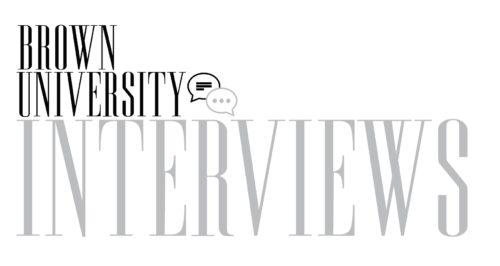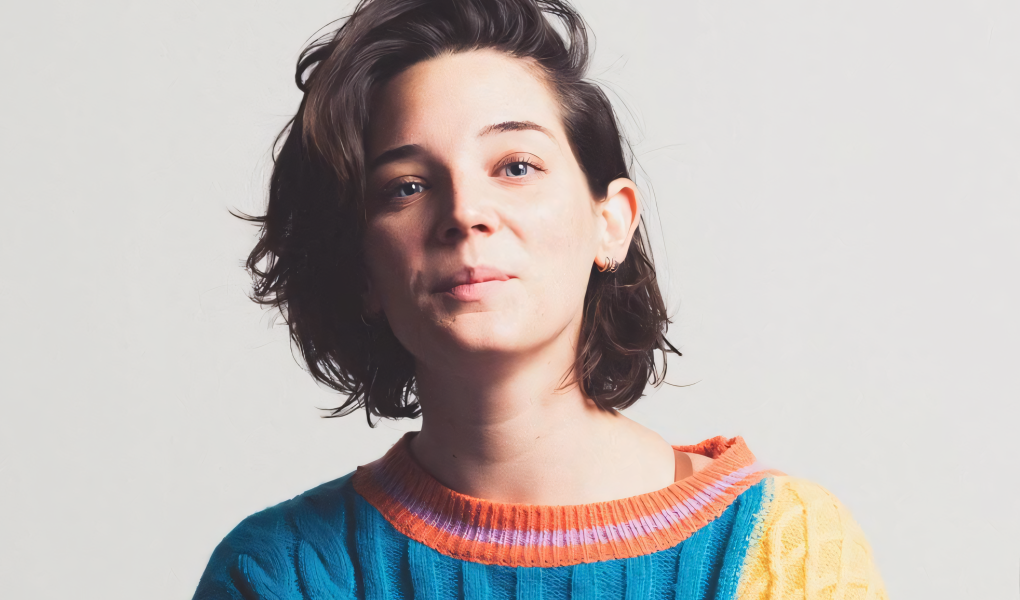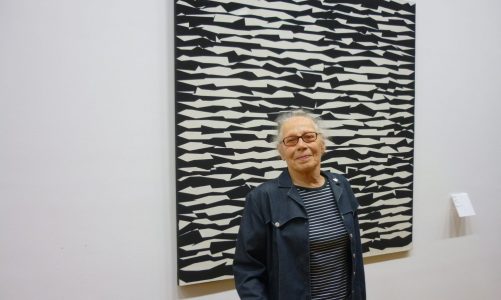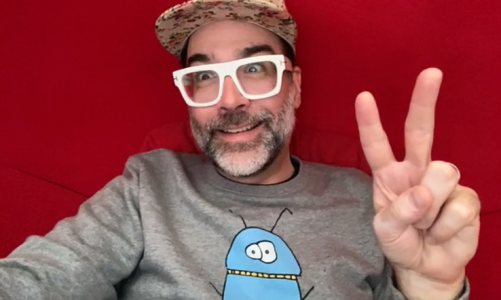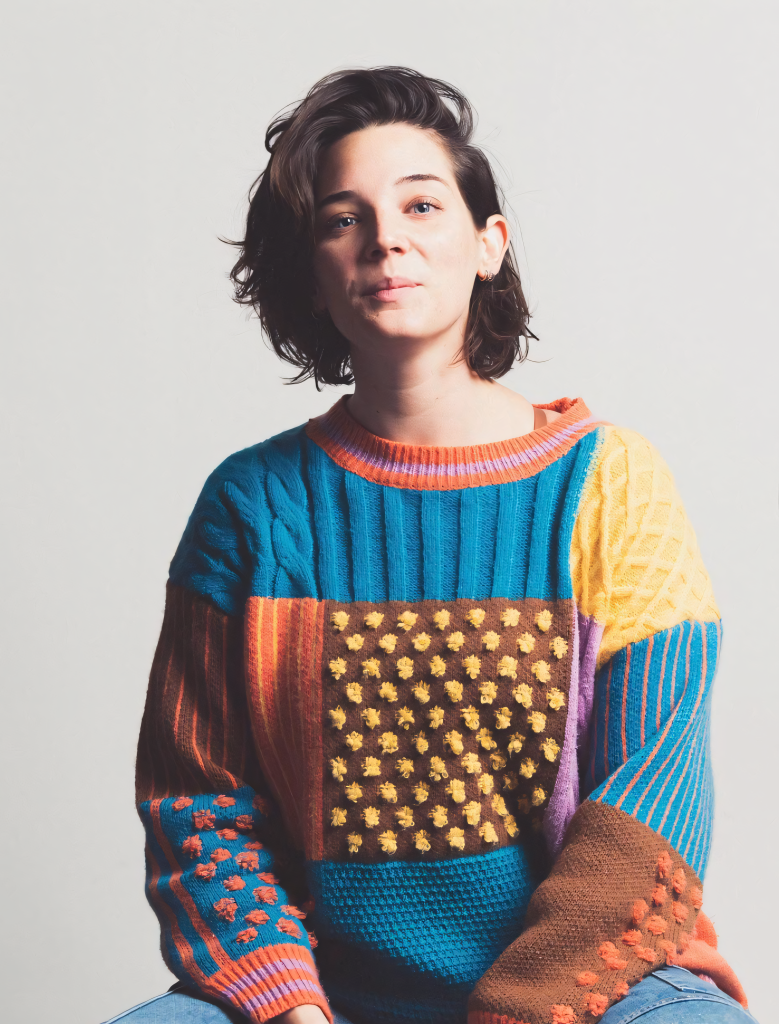
Sammy Rae is the lead singer of Sammy Rae & the Friends, an eight-member band with music based on classic rock, folk, funk, soul, and jazz. Having formed in New York, the group sees themselves as a family both on and off the stage, exuding positivity, self-love, and acceptance. This interview took place with the Friends’ first international tour, which will take place in the UK, on the horizon. Sammy uses their platform to advocate for queer rights, efforts that shine through the band’s lyrics.
Marin Warshay: Was fame always your aspiration when you started writing songs as a kid?
Sammy Rae: When I was 12 and I saw Bruce Springsteen on VH1 Storytellers where he was playing some of his greatest songs. It was just him and his guitar, and he talked about the songwriting inspiration and the lyrics. It was then that I realized, “Oh, okay, music plus words equal songwriting, and that’s a really powerful tool and art form.” I loved it. I realized very quickly that I didn’t wanna do it alone. I wanted to do it with a band, but that didn’t come along until I was a little bit older and I moved to New York.
From the time I was young, it was Bruce. I fell in love with some other classic rock band leaders. I knew I wanted to write songs and lead a band, but that was about it. I hoped to be famous, but that’s not something you can process when you’re 13.
Is Bruce Springsteen still an icon to you?
He’s still huge to me. I had a totally transcendent moment last night when we went to see these pals of ours and everybody was hanging out and talking about the industry and connecting. I looked up at the bar and saw Bruce was on Jimmy Fallon, so I got to spend a second looking at him. It was pretty full circle.
Releasing art can be a very vulnerable process. Do you ever get nervous about sharing your art?
Totally. It is enormously vulnerable. I think as I get older in my life, what I want to write about starts to shift a little bit. It gets harder because The Good Life is a wonderful EP and I love it, but those are the stories I wanted to tell at 20, and I’m not 20 anymore. I want to tell the stories that make sense to me now, and I’ve just lived so much more life. So there’s so much more reason to be more vulnerable and tell different stories. As time goes on, it gets a little bit harder to be revelatory like that, but that is what I do and I seek joy from it. I don’t get nervous about it, but it does make me pause.
A large chunk of your music comes from tropes about self-love and self-acceptance. How do these themes show up in your life?
When I got to New York when I was 19, I was suddenly not in this small town of Connecticut anymore. The world was much larger and more exciting and I saw so many different sorts of people and art. I realized I could be anything I wanted. I had moved places for the first time and I was jumping into my industry with a sense of deep freedom to be whoever I wanted to be. I didn’t feel so othered or such an odd fish. It was a really wonderful two years of me diving into the music scene, figuring out my fashion sense, my sense of humor, who I was socially, and my queerness.
That was a time period when I was writing most of those songs from my album the Good Life. Whatever We Feel came shortly thereafter, in that really special time period. That was definitely a self-love awakening for me when I came to New York.
What does it take to write a song? Can anyone do it?
Anyone can write a song. Not everybody can write a good song. A good song is pretty objective. Everybody has the capacity to appreciate music and understand how to put lyrics and music together in ways that tell a more complex story. Everybody’s process of writing a song is different. I’m lyric-driven. So my way of writing it is usually lyrics first. It takes a sense of cleverness when it comes to lyrics, and it really does take some musical background to write musically-interesting stuff. So everybody, anybody, could write a song.
While having a public platform is certainly a privilege, does it ever feel like a burden?
It does not feel like a burden. It feels like I have a responsibility to advocate for myself, the things I care about, the people that appreciate our music, and the things that I know our fans care about. I have to have a sense of purpose with this; otherwise, there are all these people looking at me and I’m not doing anything meaningful with it. There is always going to be somebody who doesn’t like things that you do but somebody else will. When you make yourself publicly visible, you get dumb comments about dumb things. The internet is the internet. It takes a lot of courage, awareness, strength, and confidence in who you are to not let that stuff weigh you down.
As a queer person with a platform, what is something you want your queer followers to know and that you wish someone had told you when you were younger?
That they can just exist and that they are queer enough. That they don’t have to be any particular version of anything in order to be queer. All they have to do is be fully themselves. You may not be for everybody, but you are for some people, and you will find your folks out there. Just keep looking. It’s an act of resilience just to exist confidently as a queer person and not be in hiding. I wish somebody had told me when I was younger that you don’t have to perform anything, you can just be yourself. You can just be your unlimited, multifaceted self. That’s what our queer icons and social activists who have come before us have fought for—our visibility. So you can just be visible however you are. You don’t have to be anything in particular.
What is it like being in a relationship with someone in the band?
It is wonderful. We figure it out. We’re on a remarkable journey together as two people who are partnered. It’s very special to be able to share that with each other. We’re seeing the world with each other. We’re making an impact on each other. We’re growing as artists and as people together, which is beautiful. And we’re very, very lucky that the band we surround ourselves with is all a family. Our coupleship doesn’t take the front seat on the road, right?
When we are at work, we’re more concerned about our family dynamic and making sure we serve our fans by making the best music we can. But it’s lovely to be traveling the world with each other and seeing each other in so many different environments and cheering for each other.
When I win, he wins. When he wins, I win. We’re together. We got very, very lucky. We’re also lucky to be surrounded and supported by our loving band members.
You have a frog named Fruit. Does come on tour with you?
He does not. Fruit is with my dad right now in Connecticut. We joke about it sometimes. All he needs is a little heater that sits on top of his tank. We joke, but we couldn’t plug that into the bus. I would love for him to see the world, but I’d feel bad because he takes up a little space.
Where did his name come from?
I don’t even know. I had a friend who had a cat named Soup, and I was really into the idea of a single-syllable food. When I first got him, I actually named him Oak because he was brown and kind of mushy. I knew that he would change colors depending on the humidity and his stress levels. But after having him for about a week, he changed colors so dramatically—into this electric kiwi green—and I was like “Oh my God. He’s so special. He’s so many different colors. He’s just a fruit.” So I changed to Fruit because there are so many different sorts of fruits.
Going back to your music, how do you make each show feel special?
Every audience is different and we learned so much on this last national tour. We’re traveling to so many states, so there are different messages and songs that hit harder and are more important to play for folks. We’re pretty flexible day to day with what we gather from the city. We gather information from the folks that we met here and ask questions, such as, “What might the audience be like tonight and what do they really need to hear? So we try to keep it special in that way. We don’t play the same exact set every single night. That malleability keeps things fresh for sure.
You mentioned in past interviews that you used to create and perform music for little kids. It sounded like you really loved it and had intentions of going back to that. Do you still see that in your future? Or in general, what do you see for the future of your band?
I can’t make any comments on what I want to do with my kid’s music career just yet, because I don’t think the time to go back to that is now. I think I want to wait for another fifteen to twenty years, for the next chapter of my life. Hopefully, I’ll be a parent by then and I will know how to do it a little more efficiently—how to reach kids and navigate kids’ media. I think that we really underestimate children in the media, especially in the music that we create for them. I would love to make more educational, challenging, and profound stuff. Kids can take it and they love live music. Maybe I’ll just make a kids’ record with Paul McCartney and establish my legacy. I also have this dream of being a kid’s TV show host and bringing it to more of a broadcasting realm in front of the camera—like Mr. Rogers, Pee-wee Herman thing, but we’ll see.
In terms of the band, it has been a really great year of touring for us. We are excited to be slowing down and off the road for a couple of months this spring. Hopefully, we will be in the studio recording a whole bunch of new music. We’ll be over in the UK touring this January and we’re very excited to take the show internationally and see what that feels like.
*This interview has been edited for length and clarity.
